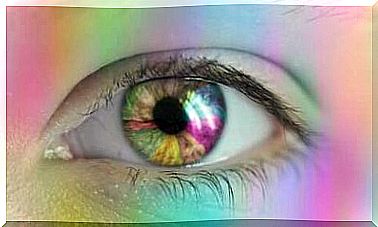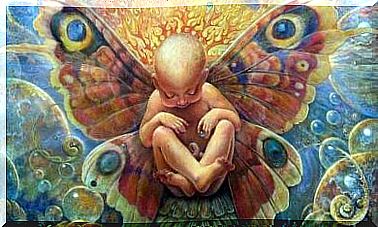The Meaning Of “I Love You ” At Every Stage Of The Relationship
The famous “I love you” often marks the beginning of a great romance and the end point of a breakup. It is obvious that in a relationship, depending on the period you are going through, these words can mean several very different things.
It is surely not the same thing to say “I love you” for the first time, than to say it when it is already a year that we are with our spouse.
Why so many meanings for “I love you”?
Two people who have a relationship grow together at the same time. In her personal development, each of them encounters new situations which have repercussions on her life and therefore on the couple.
As a result, the meaning of “I love you” evolves according to the evolution of the relationship and the people who constitute it.
It is obvious that there is something immutable when we say these words, because we want to direct them to a particular person.
No matter how we say them, their importance and magic must be maintained throughout the relationship, at an important position.
So what does “I love you” mean at each step?
– Two months: I like how everything goes. In a long-term, stable relationship, two months is a very short distance.
The beginning is the moment when we feel the most in love, since we have just discovered this special person with whom we want to start such an exciting project.
Saying “I love you” after two months means that you feel that what you are experiencing will last forever. However, if we are realistic, we know that everything does not last forever, let alone a relationship that has just started.
It is good to emphasize that this first step, which many of us call personal immaturity, is unique to youth and the fact that we haven’t had a lot of relationships.
We confuse the way we love someone throughout our lives and say “I love you” instead of an intense “I like you”.
We invite you to think before using these two very important words in your vocabulary. Look inside you. So you can avoid emotional misunderstandings and not hurt the person you start to like or not.
– Five months: You are important. Studies say we are in the last days of the first stage of love. Saying “I love you” at this time can mean “you are important in my life” and “I would like to find a place for your heart in mine”.
It is obvious that we still feel uncertainty and a lot of doubts or fears. A time less than 6 months does not imply anything very clear. This is why saying “I love you” at this moment means that we have butterflies in the belly, but perhaps not yet in the heart.
– Six months: We’re so good when we’re together. At this moment, the two cannot stop thinking about each other. You love everything he or she does, and what it has in common with you. You like the way he or she expresses his or her love for you: photos, letters, etc.
“I love you” means a lot more than what we have felt for three months. With these words you want to say: I love the way this person makes me feel. You are happy because you feel that you are part of her life and she is part of yours.
– Seven months: It’s ours. There is a nice comparison: “ loving someone is like moving to another city”. You will find that everything makes sense because in a relationship, the more time passes, the more mutual feeling grows.
When we say “I love you” at this stage, we really mean what’s mine is yours and what’s yours is mine.
From now on, this “I love you” is something shared, like everything that takes place in a relationship.
– Ten months: You are my best friend. Now is the time to see your relationship in a natural way. When you’re apart from your other half, you don’t feel comfortable.
At this point, “I love you” has a much more serious connotation . It doesn’t matter whether you say it after a joke or via text message, the meaning is equally important.
If you were asked at this point, you would only say that your spouse is a great person . You could also say that he or she is your best friend.
This type of “I love you” goes beyond what he or she wants to give you or what you want to give him or her. This is when the word “love” begins to enter our inner language and our heart.
– One year: You are my life. What you experience in your relationship is unconditional and pure love. If you were asked how you feel, you would surely answer that “ you cannot imagine life without him or her”.
At this point, “I love you” is much more permanent because you no longer wonder who is feeling the most feelings and you don’t worry about whether the other is feeling the same as you.
You feel secure and in a comfortable situation. Saying “I love you” to that person opens you up and makes you feel fulfilled with them.
– Two years: I think about the future. “I love you” at this stage means “I love what you are and I will love what you will become”.
Obviously, this meaning takes on its full meaning when you have a feeling of confidence. When the two are united, nothing is impossible or frightening.
– Three years, when the two live together: marry me. “I love you” means that you want the love you feel for her / him to be something permanent.
You want to share everything with the person you love. A life full of tenderness, trust, wisdom and most importantly, mutual learning.
At these times, “I love you” can be a little shorter. With these words you surely mean “you are all that I love” because that is really what your heart and soul really means.
– Four years, marriage and official compromise: You dream with your eyes open. One of the most beautiful experiences that every human being has is to love and to be loved by the corresponding person. Love is everything.
Feeling the other person’s true love for your heart and corresponding to them unconditionally has no name or smell.
Look no further for you are touching emotional “ nirvana”. Many people will tell you that you are lucky and others will show you jealousy.
What we have explained throughout this article is what usually happens in evolving couples, but it is important to be aware that each couple has needs and their own pace.
Many, for example, can get stuck at certain stages, requiring more time or emotional tools to work on the relationship.









